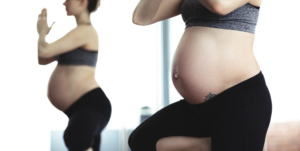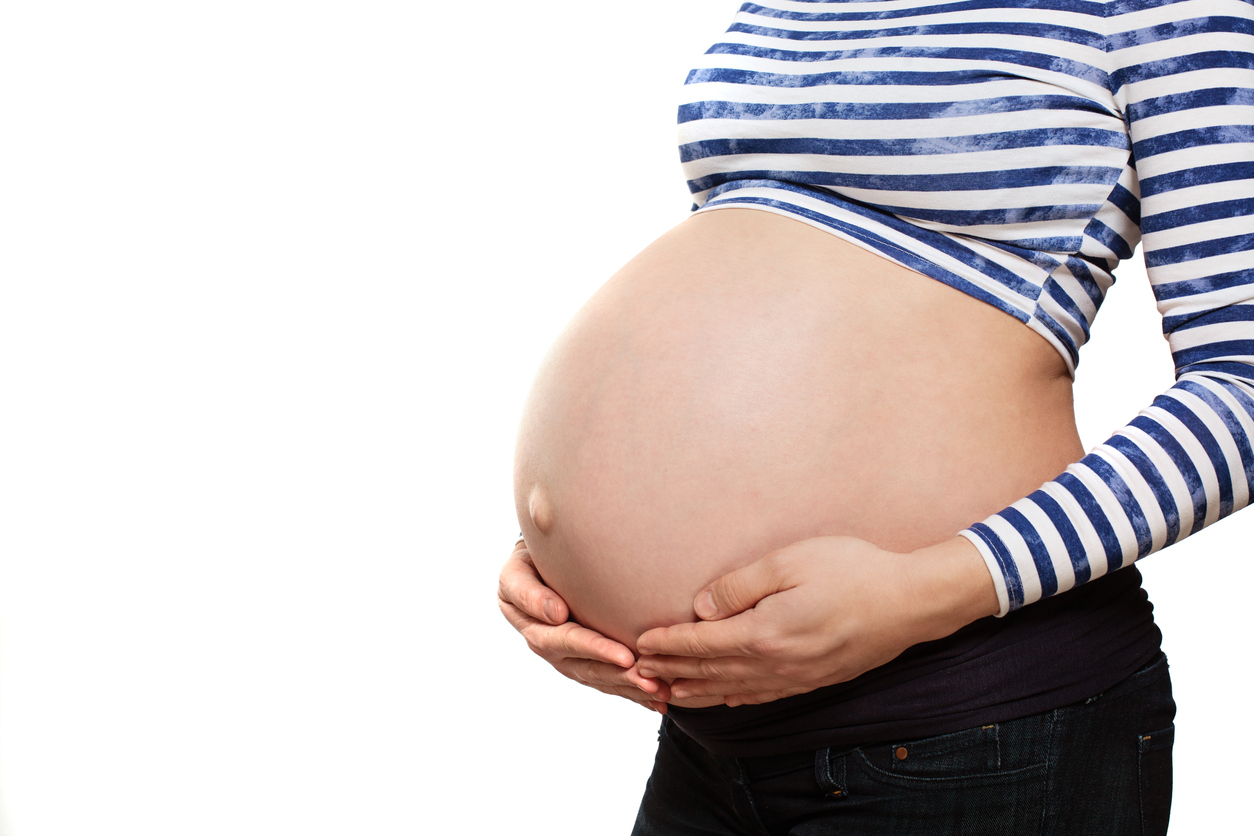We all know that exercise is good for us and that ideally, we should be doing it regularly, but does this apply during pregnancy?
As a Women’s Health Physiotherapist frequently working with pregnant women, I come across ladies who are unsure or sometimes even fearful about partaking in exercise during pregnancy. However, for most women, exercising during pregnancy has numerous benefits to both mother and baby [1].
The aim of this blog post is to highlight some of these benefits in relation to some common conditions experienced during pregnancy, taken from the latest published research in this area.

- Gestational Diabetes
Gestational Diabetes has been linked to excessive weight gain and obesity during pregnancy and has the capacity to affect the health of both mother and unborn child. The condition is caused by high levels of sugar within the blood, that the body is not able to absorb or use normally.
A research trial in 2019 [2] investigated whether exercise could influence the prevalence of Gestational Diabetes and weight gain during pregnancy.
456 pregnant women were divided into 2 groups. One of these groups received moderate aerobic exercise and the other group did not. The group which received the exercise partook in 55 to 60-minute exercise sessions, 3 times per week. These sessions started between 8 and 10 weeks of pregnancy and continued up to 38-39 weeks of gestation. The exercise consisted of a warm-up, an aerobic exercise session of light to moderate intensity, pelvic floor exercises, balance work, stretching and a cool down.
The researchers found that the women in the non-exercising group, women were more likely to gain weight [30.2%] and develop Gestational Diabetes [6.8%] than the exercise group [20.5% and 2.6%].
These results indicate that exercise may be preventative in the development of Gestational Diabetes and weight gain during pregnancy.
- Disorders associated with blood pressure
Hypertension [high blood pressure] and pre-eclampsia are conditions which may develop during pregnancy which have the potential to become serious. They affect 6-8% of pregnant women and may linked to obesity and weight gain, certain immune conditions, a lack of physical activity, smoking, alcohol consumption, a multiple pregnancy, age or family history.
Pre-eclampsia is a severe condition which can develop during pregnancy and may be life threatening both to the mother and fetus. This condition lies within the placenta and is associated with the abnormal development of the blood vessels which carry blood to and from the placenta. Blood is not able to travel as easily though these vessels, resulting in inefficient blood flow and this compromises the oxygen and nutrient supply between the mother and baby.
A large systematic review of the research in 2017 [3] looked at the effects of exercise on hypertensive conditions during pregnancy and whether exercise can be preventive in their development. They looked at 17 studies which included a total of 5075 pregnant women. They investigated the effects of aerobic exercise compared with no exercise in pregnant women, with exercise sessions consisting of aerobic sessions lasting between 30 and 60 minutes, between 3 and 7 times per week.
The researchers found that the women who partook in the exercise sessions showed a 61% decrease in gestational hypertensive disorders and interestingly, a 16% reduction in the rate of Caesarean sections, compared with the group who did no exercise. Despite this, there was no difference in the prevalence of pre-eclampsia between the groups.
These results indicate that exercise during pregnancy may be beneficial in reducing hypertensive disorders, possibly due to the effects of exercise on weight gain and on the cardiovascular system. However, it is vital that if you are experiencing blood pressure issues during your pregnancy, you consult your health provider before commencing or continuing with exercise, to ensure that you are supervised and guided appropriately and safely.
- Symptoms of Depression
Depression during pregnancy is common due to the physical, psychological and hormonal changes which occur during this time. Some researchers have even suggested that the prevalence of depression during pregnancy is higher than in the postnatal period.
Medications are not as easy to take during pregnancy to manage symptoms and the effects of depression have also been shown to affect the development of the unborn fetus and influence fetal outcomes.
An large research trial carried out in 2015 investigated whether exercise in pregnancy can help to reduce the symptoms of depression. 167 women took part in the study and were divided into 2 groups, one receiving exercise whilst the other did not.
The exercise group received 55 to 60 minute session of exercise, 3 times a week starting between 9 and 12 weeks of gestation and continuing until 39-40 weeks. Each session consisted of a warm up, aerobic exercise, pelvic floor exercises, stretches and a warm down. The exercise sessions were kept to a light to moderate intensity.
Women completed mental health questionnaires at the beginning and end of the research trial. This questionnaire assessed various aspects of depressive symptom presentation.
The women in each group started off with similar scores, with similar numbers of women showing symptoms of depression. However, by the end of the study 12% of the women in the exercise group compared with 24% in the non-exercising group were still showing signs of depression.
The study concluded that pregnant women who exercise throughout their pregnancy are less likely to have depression by the end of their third trimester. More women excessively gained weight in the control group that the exercise group.
This research trial thus indicates that exercise may be beneficial in reducing the symptoms of depression during pregnancy.
These are just some of the many many research trials which have been conducted over the years, investigating the benefits of exercise on the health of the pregnant woman.
We know that regular exercise has numerous benefits to all systems within the body, particularly the cardiovascular system. It may also help to increase the body’s ‘feel-good’ hormones including endorphins, dopamine and serotonin levels, which can help reduce stress, increase relaxation and improve sleep, as well as increasing levels of body satisfaction, image and improved weight management.
Women who are physically active and were active prior to their pregnancy should be able to continue and enjoy regular exercise throughout their pregnancy, provided that they do not have or develop any underlying health conditions, including those mentioned above. Exercise may help with some of these conditions, however it is still vital that you consult with your health provider if you have any changes in your medical health, to make sure that you remain safe to exercise. Contra-indications and precautions with regards to exercise must be adhered to and these will be discussed in our next blog post; Exercise in Pregnancy: What are the guidelines and recommendations?
If you have any questions regarding exercise during your pregnancy feel free to contact us for free to discuss further.

References
[1] Hinman SK, Smith KB, Quillen DM, Smith MS.[2015] Exercise in Pregnancy: A Clinical Review. Sports Health. 7(6):527‐531. [2] Barakat R, Refoyo I, Coteron J, Franco E. [2019] Exercise during pregnancy has a preventative effect on excessive maternal weight gain and gestational diabetes. A randomized controlled trial. Braz J Phys Ther. 23(2):148‐155. [3] Magro-Malosso ER, Saccone G, Di Tommaso M, Roman A, Berghella V [2017.] Exercise during pregnancy and risk of gestational hypertensive disorders: A systematic review and meta-analysis. Acta Obstetricia et Gynecologica Scandinavica. 96[8] 921-931 [4] M. Perales, Refoyo I, Coteron J, Bacchi M, Barakat R [2015]. Exercise During Pregnancy Attenuates Prenatal Depression: A Randomized Controlled Trial. Evaluation & the Health Professions Vol. 38(1) 59-72

